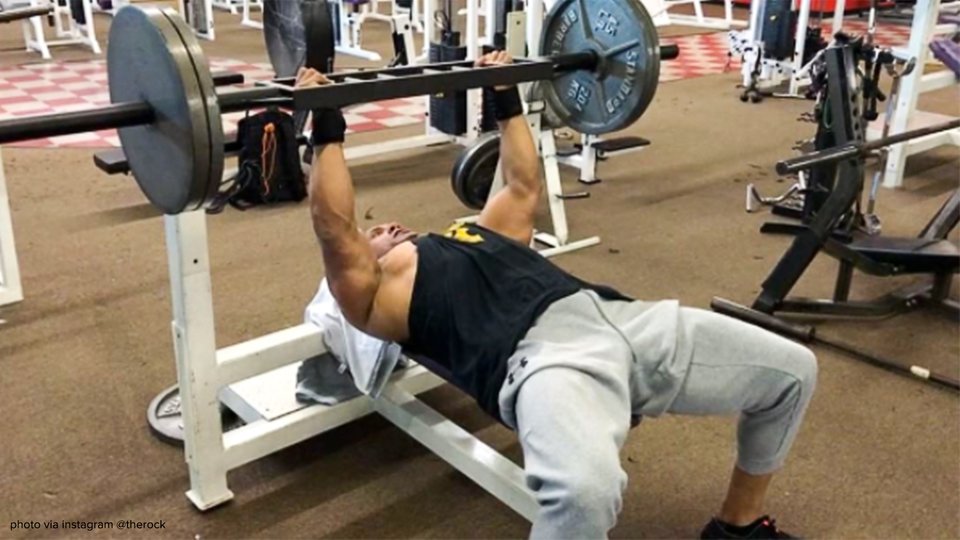Do you ever wonder if your bench press is good enough? Well, let’s talk about it! Is 275 pounds a good bench press? You might be surprised to find out just how rare it is to reach that level of strength. In this article, we’ll dive deep into the world of bench pressing and examine what it takes to hit that impressive 275-pound mark.
When it comes to bench pressing, everyone has their own goals and standards. Some may consider a bench press of 275 pounds to be a remarkable feat of strength, while others might see it as just the beginning. However, the truth is that reaching a bench press of 275 pounds is no easy task. It requires a significant amount of dedication, hard work, and consistent training.
In the following paragraphs, we’ll explore the factors that contribute to a good bench press and why 275 pounds is considered rare. We’ll also discuss how you can improve your bench press and gradually work your way up to that amazing milestone.
So, if you’re curious about the world of bench pressing and want to learn more about what it takes to achieve a 275-pound bench press, keep reading. You’re about to become an expert on the topic!

Definition of a Good Bench Press
A good bench press is a measurement of strength and ability in the upper body, specifically the muscles in the chest, shoulders, and triceps. It is a compound exercise that involves lying flat on a bench and pushing a weighted barbell away from the chest. The bench press is widely used as a benchmark for overall strength and is a key component in various athletic endeavors, including powerlifting and bodybuilding.
Determining the Standards
When considering whether a bench press of 275 pounds is good or not, it is essential to establish some standards for comparison. Various strength standards have been developed over the years to assess an individual’s bench press performance. These standards take into account factors such as gender, age, and body weight, as they can significantly influence one’s ability to lift.
Weight Categories for Strength
To determine the strength level of a bench press, it is necessary to consider the weight category in which the individual falls. Bench press strength categories typically include novice, intermediate, advanced, and elite. Novice lifters are generally beginners who are just starting their strength training journey and may not have developed enough muscle strength.
Intermediate lifters have built a foundation of strength and are progressively increasing their weights. Advanced lifters have acquired substantial strength and are at a higher level of performance. Elite lifters are the top tier of bench press strength, often competing at national or international levels.
Setting Achievable Goals
To evaluate the proficiency of a 275-pound bench press, it is crucial to set realistic and achievable goals based on an individual’s current strength level. It’s important to remember that everyone starts at a different point and progresses at their own pace. Setting goals that are challenging but attainable can help maintain motivation and measure progress accurately.
Evaluating Bench Press Strength
Calculating One-Rep Max
One way to assess the strength of a bench press is by calculating the one-rep max (1RM). The 1RM represents the maximum weight an individual can lift for a single repetition with proper form. To determine the 1RM, it is necessary to perform multiple reps at different weight loads until the maximum weight is reached. While calculating the 1RM can be useful, it is essential to approach it with caution, as it can carry a risk of injury if attempted without proper technique or supervision.
Comparing to Average Lifts
Another way to evaluate the proficiency of a 275-pound bench press is by comparing it to average lifts. Average bench press numbers vary depending on factors such as gender, age, and weight category. By comparing one’s performance to average lifts within the same category, it becomes easier to gauge how well the bench press stacks up against peers.
Strength Relative to Body Weight
In addition to comparing bench press performance to average lifts, it is helpful to consider the strength relative to body weight. Bench pressing 275 pounds may be more impressive for a person who weighs 150 pounds compared to someone who weighs 250 pounds. Strength relative to body weight accounts for the individual’s overall size and can provide a better understanding of their relative strength.

Impressiveness of a 275 Bench Press
Comparison to Strength Standards
When considering a 275-pound bench press, it is helpful to compare it to strength standards to determine its impressiveness. For example, according to strength standards, a 275-pound bench press may fall into the advanced or even elite category, depending on factors such as age and weight category. Achieving such a lift places an individual among the upper echelons of bench press strength.
Elite Level Bench Press
A 275-pound bench press is considered elite level strength, especially for individuals who fall into the average weight category. Attaining this level of lifting requires dedication, consistent training, and progressive overload. Elite-level bench pressers are often admired for their exceptional strength and are seen as role models within the fitness community.
Implications of Achieving 275
Achieving a 275-pound bench press has several implications. Firstly, it demonstrates a high level of commitment and discipline towards strength training. Secondly, it showcases significant progress and improvement in upper body strength. Lastly, it signifies a level of performance that many strive for but only a few accomplish.
Factors Affecting Bench Press Performance
Muscle Strength and Size
Muscle strength and size play a crucial role in bench press performance. The chest muscles (pectoralis major and minor), shoulders (deltoids), and triceps are the primary muscles involved in the bench press. Building strength and size in these muscle groups through resistance training is vital for increasing bench press performance.
Training Techniques and Programs
The training techniques and programs used can greatly impact bench press performance. Techniques such as maintaining proper form, utilizing tempo variations, and incorporating pause reps can enhance strength gains. Choosing an appropriate training program that includes progressive overload and periodization can also contribute to improvements in bench press performance.
Individual Genetics and Body Structure
Individual genetics and body structure can also affect bench press performance. Some individuals may have genetic advantages, such as favorable muscle fiber distribution or tendon/joint elasticity, which can contribute to increased strength. Body structure, including limb length and leverages, can also impact bench press performance. Emphasizing proper technique and form can help individuals work within their unique genetic and structural limitations.

Training Strategies for Improving Bench Press
Progressive Overload and Training Frequency
Progressive overload is a key training principle for improving bench press strength. By gradually increasing the weight lifted over time, the body adapts and becomes stronger. Consistency and frequency are also crucial in improving bench press performance. Regularly training the bench press and gradually increasing the training volume and intensity can lead to continual progress.
Variation of Grip and Barbell Path
Varying the grip width and barbell path in the bench press can target different muscles and enhance overall strength. Utilizing a wide grip places more emphasis on the chest muscles, while a narrower grip emphasizes the triceps. Experimenting with different grip widths and barbell paths can help identify the most effective technique for individual strength gains.
Accessory Exercises and Techniques
Incorporating accessory exercises and techniques can supplement bench press training and lead to improvements in strength. Exercises such as dumbbell presses, incline bench presses, and push-ups target the same muscle groups used in the bench press but provide variation and targeted muscle stimulation. Techniques such as pause reps, tempo variations, and incorporating bands or chains can also challenge the muscles in different ways and promote strength gains.
Common Mistakes in Bench Press Form
Improper Grip and Hand Placement
One common mistake in bench press form is using improper grip and hand placement. Gripping the barbell too wide or too narrow can compromise muscle engagement and overall stability. It is important to find a grip width that allows for maximal engagement of the chest, shoulders, and triceps while maintaining control and a stable position.
Arching the Back Excessively
Another common mistake is excessively arching the back during the bench press. While some arch in the lower back is natural and can assist with generating power, excessive arching can place undue stress on the spine and lower back muscles. Striving for a neutral spine position throughout the lift is crucial for maintaining proper form and minimizing the risk of injury.
Lack of Control and Stability
Lack of control and stability during the bench press can significantly impact performance and increase the risk of injury. Failing to maintain a stable position on the bench, allowing the barbell to drift off its path, or using excessive momentum can decrease the effectiveness of the exercise. Cultivating control and stability through proper form, a strong mind-muscle connection, and core strength is essential for optimizing bench press performance.

Avoiding Plateaus in Bench Press Progress
Implementing Deload and Rest Periods
To avoid plateaus in bench press progress, it is crucial to implement deload and rest periods. Deloading involves reducing the training volume and intensity for a period to allow the body to recover and supercompensate. Rest periods, including appropriate sleep and recovery practices, are vital for ensuring the body has enough time to repair and adapt to the training stimulus. By strategically incorporating deload and rest periods, individuals can continue making progress in their bench press strength.
Varying Rep and Set Schemes
Varying the rep and set schemes can also help break through plateaus in bench press progress. Different rep and set schemes, such as alternating between high volume and low volume days or incorporating pyramid sets, can provide the muscles with new stimuli and promote strength gains. It is important to periodically adjust rep and set schemes to keep the body challenged and continuously progressing.
Incorporating Different Training Methods
Incorporating different training methods can further prevent plateaus in bench press progress. Methods such as supersets, drop sets, and partial reps can target the muscles in different ways and stimulate further strength gains. Introducing new exercises or variations, such as dumbbell bench presses or incline presses, can also provide a fresh stimulus and help overcome plateaus.
Preventing Injuries in Bench Press
Proper Warm-Up and Mobility Work
Preventing injuries in the bench press starts with a proper warm-up and mobility work. A thorough warm-up routine that includes dynamic stretches and activation exercises prepares the muscles and joints for the demands of the bench press. Mobility work targeting areas such as the shoulders, upper back, and chest can improve range of motion and ensure proper movement patterns.
Spotter or Safety Measures
Having a spotter or implementing safety measures such as a power rack or bench press safety straps can provide an added layer of protection during the bench press. A spotter can assist in unracking and reracking the weight, as well as provide assistance if the lifter reaches failure. Safety measures, such as safety straps that catch the barbell if it is dropped, can prevent injuries and provide peace of mind during the exercise.
Avoiding Overtraining and Fatigue
Overtraining and fatigue can increase the risk of injuries, so it is important to avoid excessive training volume and listen to the body’s signals. Proper recovery, including sufficient rest days, sleep, and nutrition, is crucial for preventing overtraining and allowing the body to repair and adapt to the training stimulus. Progressive overload should be balanced with adequate recovery to ensure continued progress while minimizing the risk of injury.

Role of Nutrition in Bench Press Performance
Adequate Protein and Caloric Intake
Nutrition plays a significant role in bench press performance. Adequate protein intake is crucial for muscle repair and growth, as the bench press places significant stress on the chest, shoulders, and triceps. Aim for a protein intake of around 0.8-1 gram of protein per pound of body weight to support muscle recovery and assist in strength gains. Additionally, maintaining a caloric intake that aligns with one’s goals (whether that be maintenance, muscle gain, or fat loss) is important for providing the necessary energy for training and supporting overall performance.
Proper Hydration and Electrolyte Balance
Proper hydration and electrolyte balance are essential for optimal bench press performance. Dehydration can lead to decreased strength, endurance, and overall performance. Aim to drink enough water throughout the day and especially before and during training sessions. Ensuring a proper balance of electrolytes, including sodium, potassium, and magnesium, is also important for maintaining proper muscle function and preventing cramping.
Importance of Pre- and Post-Workout Nutrition
Pre- and post-workout nutrition can significantly impact bench press performance. Consuming a balanced pre-workout meal or snack that includes carbohydrates for energy, protein for muscle repair, and fats for sustained energy can provide the necessary nutrients to fuel a productive training session. Post-workout nutrition, such as a protein shake or meal, supports muscle recovery and aids in optimizing strength gains.
Conclusion
A 275-pound bench press is considered a good bench press and falls within the range of impressive strength levels. However, it is important to remember that strength is subjective and dependent on various factors such as age, gender, and body weight. Evaluating bench press strength involves considering standards, comparing to average lifts, and assessing strength relative to body weight.
It is essential to set realistic goals, focus on proper training techniques, and have a well-rounded approach that includes proper nutrition and injury prevention strategies. Continual progress and improvement, regardless of the specific weight lifted, is the key to achieving a strong and healthy bench press.




